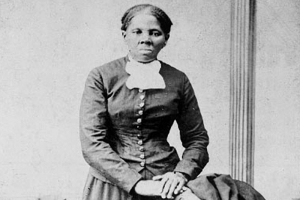Election Day Reveals Voters Not as Ready for Change as Parties Indicate
Tuesday’s voting day revealed that for all the anxiety surrounding the economy and low approval ratings in Congress and the White House, voters were not inclined to throw incumbents out of power, at least at the state and local level. They did, however, have one overarching statement to make to the government: Get out of the way.
Big city mayors like Houston, Philadelphia, Indianapolis, Baltimore, and Charlotte, North Carolina, avoided the axe after a lackluster voting day turnout ended in their favor. Analysts watched this election closely, thinking it would reveal clues about the public’s mood and how the first presidential primary, scheduled in January, may turn out.
Big news out of Mississippi, a state that has a large conservative electorate, is that an anti-abortion bill was voted down. The Personhood Amendment, had it passed, would have stated that human life begins at conception and therefore abortion would have been completely outlawed. The measure failed by a large margin. Many Mississippi voters, including pro-life supporters, told The Christian Post in earlier interviews that they voted against the bill because of its vague wording and possible unintended consequences.
The overarching concern, even among pro-life voters, was that the bill had the possibility to give too much power to the government over personal choice.
In Ohio, citizens voted to repeal a law, backed by the Republicans, which restricted collective bargaining for public workers. The repeal garnered more than 60 percent of the vote.
Gov. John Kasich (R) took office in January promising to decrease union power. However, the bill he passed in March was met with fierce outcry from unions when it was discovered it would take away their ability to negotiate over benefits and other issues. It did not take away their ability to negotiate pay.
"Ohio sent a message to every politician out there: Go in and make war on your employees rather than make jobs with your employees, and you do so at your own peril," AFL-CIO President Richard Trumka said, according to the Associated Press. The governor said he respects the people’s decision.
In 2010, Ohioan Democrats were badly defeated in state and local elections. With newly elected Republican lawmakers taking up the issue of union labor and threatening to downsize it, Democrats are seeing the results of 2011 as a victory.
“With the change in political power in many states last year, Republican governors misread voters’ intentions and used their newfound power to sharpen their ideological axes and enact partisan retribution,” said Democratic Governors Association Chairman Martin O’Malley (Md.) to The Washington Post.
“Ohioans - and Americans - understand that firefighters, police officers, and teachers didn’t cause this economic recession.”
However, it wasn’t all defeat for Republican Ohioans. Citizens also voted to approve a measure that would prohibit the government mandating they buy health insurance, as the national healthcare overhaul did.
The measure passed by a 2-to-1 margin. However, it is likely to be just a symbolic vote, as the issue will be decided by the U.S. Supreme Court.
This mixed bag of results for both parties in Ohio, according to The Wall Street Journal, suggests that voters are rejecting moves by both parties to reshape how the government works and relates to citizens in light of economic downturn.
The Ohio narrative illustrates what occurred around the country on Tuesday: voters appear to be neither extremely left nor extremely right as both political parties would have the public think.





























